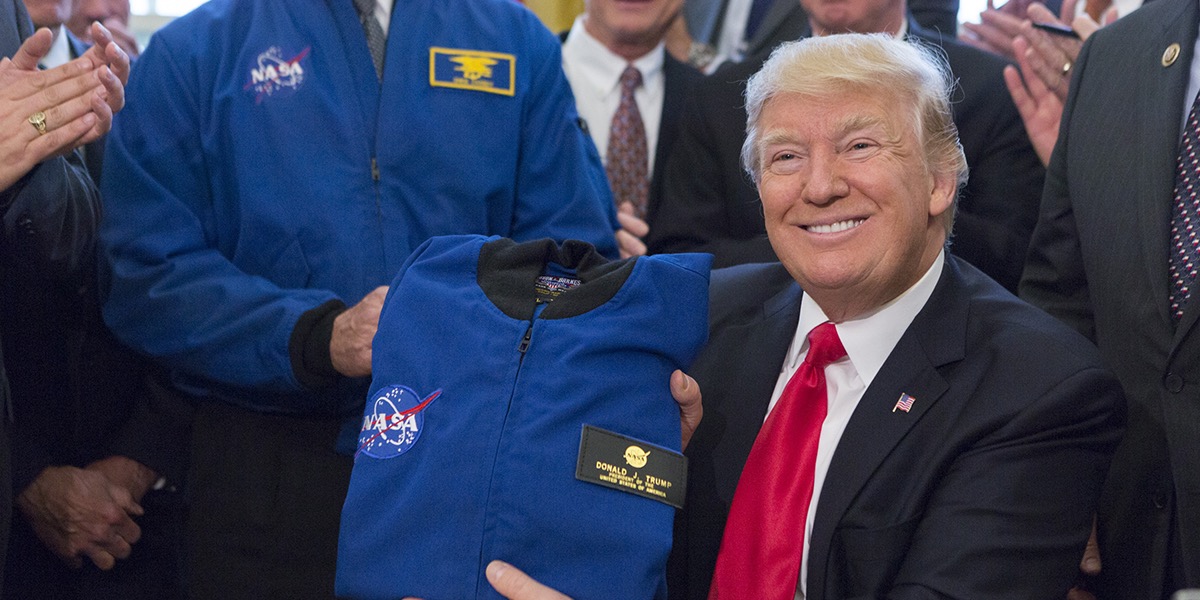
Former President Trump came away Tuesday night with a decisive Electoral College victory to return to the White House next year. With this being his second term, how could these next four years look for NASA, the Space Force, and commercial companies like SpaceX and Blue Origin?
Read More: Trump’s presidency will likely bring Space Command’s HQ location back to Alabama
SpaceX – More Starship? Conflict of interest?
It’s no secret that Elon Musk was a major supporter of President Trump’s campaign, donating millions of dollars directly through his America PAC, as well as stumping for him on the trail. President Trump has even stated Musk could see a position inside the White House if elected.
That position could cause major conflicts of interest with SpaceX being the top launch provider for the US government and taking billions of dollars a year in contracts from the Department of Defense and NASA. Either Musk would have to divest himself of his control over SpaceX, or SpaceX would need to stop taking government contracts; neither seems likely.
President Trump has spoken favorably of SpaceX’s missions to Mars and its Starship rocket. If no formal position for Musk is found in Trump’s administration, the favor for his support could be repaid with the easing of regulations from the FAA, Fish & Wildlife Service, and the EPA down in Starbase, possibly allowing for more frequent launches of the rocket and to get caught back up with Artemis’ timeline.
NASA – Human Spaceflight
President Trump, during his first term, brought to life what we now know as the Artemis Program. The formalization of the different programs and plans NASA had created over the years gave it the best structure for returning humans to the Moon yet.
However, the program has been rife with delays and cancellations due to underfunding. NASA has historically had higher budgets with Republican administrations, but with ballooning costs elsewhere—Ukraine, Israel, potential conflict around Taiwan—then inflation, immigration, and whatever comes next, tighter budgets might be sticking around.
That being said, it would be safe to expect a strong push from the administration to get Artemis back on track, cut costs, and meet the important deadlines. While it’s not the greatest reason to make humans return to the Moon, getting Artemis astronauts to the Moon before China’s missions launch will be a strong component for the reasoning.
NASA – Science
With an expected harder push for NASA to get to the Moon in a shorter amount of time and then even going to Mars, that funding will need to come from somewhere. NASA will likely not see a massive budget increase, and the increases will all but likely go to the space exploration side of NASA.
With the Republican Party all but denying the scientific fact of climate change, those missions will likely not see much funding or be canceled outright. This would likely mean fewer satellites to study and better understand the growing intensity of tropical storms, wildfires, and other strong storms across the country. Sadly, this would then free up funding for Artemis or science missions that push the bounds of exploration.
One science mission that is likely safe is Mars Sample Return. Another place where China could make a play to beat the US is in this mission, which President Trump’s administration could prioritize.
Political Budget Shenanigans
A frustrating part of NASA’s ability to explore space is its control by politics. Often, party politics can take root when different parties are in power in different branches of government. However, President Trump will have a Republican-controlled House and Senate, meaning fewer games to be played in getting budgets passed.
What might have been seen as too expensive by a Republican Congress to fund for President Biden might now be viewed as acceptable under a Republican White House.
Commercial Space Market
The current commercial space market expanded greatly during Trump’s first term thanks to cheap capital and high interest from venture capitalists to find the “next SpaceX.” Today’s commercial market has greatly changed, with most launch providers seeing tighter purse strings and higher interest rates, leading to more selective VC funding.
The morning after the election, both Jeff Bezos and Blue Origin’s CEO shared congratulations to President Trump on his win. Bezos did not choose to take a strong political stand this election cycle but is likely hoping to make the most out of this administration.
Musk’s heavy involvement in Trump’s campaign could lead to concern by other companies that are competing directly with SpaceX. Musk’s new close ties with the hand that almost feeds the entire market are a cause of concern for potential favoritism.
A new president, in my opinion, doesn’t lead me to believe in any change in the potential future of commercial space market growth. SpaceX is still the leader, and LEO constellations are the hot new thing, while what many thought would be fast cash business models are turning into against-the-odds plays. A faster growing space market will need pre-pandemic interest rates for a start, something that might
US Space Force and space defense
President Trump’s previous term created the Space Force, and while most of its growth came in these last four years, U.S. space assets are only going to become more important.
President Trump has already said he would like to expand the force with a Space National Guard. While it has been mostly opposed by the Space Force and Air Force, it has gained support politically.
Historically, Republican presidents have been strong on national defense, which now includes many billions of dollars in space assets. However, President Trump is no typical president, and how exactly he plans to implement his defense goals has been a significant concern for many.
FTC: We use income earning auto affiliate links. More.




Comments